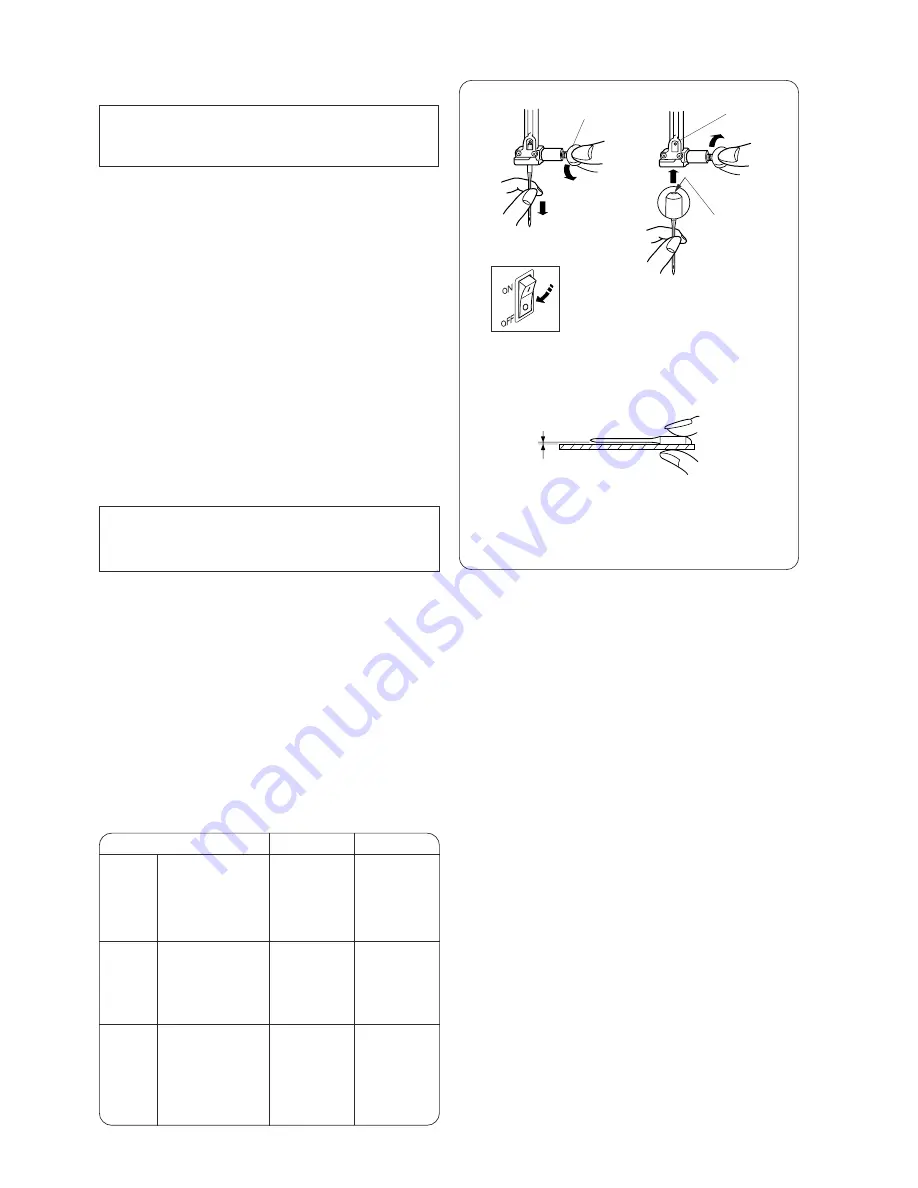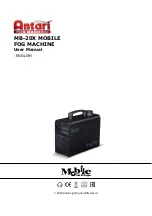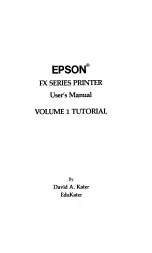
18
Changing the Needles
WARNING:
Turn OFF the power switch before changing the
needle.
z
Loosen the needle cramp screw and pull out the
needle.
x
Insert a new needle into the needle cramp with the
flat side facing back.
Push the needle up against the stopper pin and
tighten the needle cramp screw firmly.
q
Needle cramp screw
w
Stopper pin
e
Flat side
r
Power switch
c
To check the needle:
Place the flat side of the needle onto something flat
(needle plate, glass etc).
The clearance between the needle and the flat
surface should be consistent.
WARNING:
Never use a bent or blunt needle, which can cause it
to break.
q
w
e
r
z
x
Selecting Thread and Needles
c
For general sewing, use needle size 11/75 or 14/90. A
fine thread and needle should be used for sewing
lightweight fabrics, so the fabric will no be marred.
Heavy fabrics requires a needle large enough to the
fabric without fraying the needle thread.
Always test the needle size on a small pierce of fabric,
which will be used for actual sewing.
In general, use same thread for needle and bobbin.
When sewing stretch, very fine fabrics and synthetics,
use a BLUE TIPPED needle. The blue tipped needle
effectively prevents skipped stitches.
Fabric
Light
Medium
Heavy
Thread
Needle
Lawn
Georgette
Tricot
Wool, Synthetic
Cotton, Synthetic
Fine jersey
Wool
Denim
Jersey
Coating
Quilting
Silk #80–100
Cotton #80–100
Synthetic #80–100
#9/65–11/75
Silk #50
Cotton #60–80
Synthetic #50–80
Cotton #50
#11/75–14/90
#14/90
Silk #50
Cotton #40–50
Synthetic #40–50
Silk #30
Cotton #50
#14/95–16/100
#16/100
















































